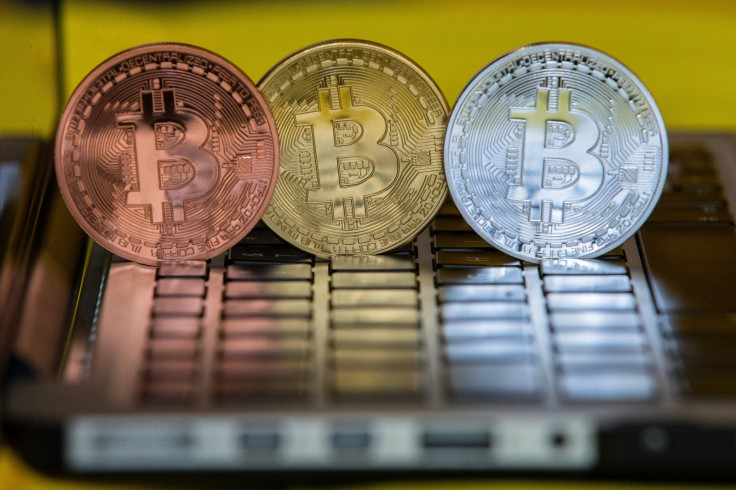Bitcoin on credit to ICOs: The maturing crypto market
Egor Gurjev, CEO at Playkey, examines some iniquities around emerging cryptocurrencies.

Recent months have demonstrated a fluctuating crypto market, leaving many potential investors in the dark as to the best course of action – mass investment? Offload with haste? Stick with the big players or seek out a new comer? Such uncertainty culminated with a number of UK and US banks banning the purchase of any token with credit cards, through fear that people were racking up unsurmountable levels of debt, hoping for a good return in their crypto investments.
For many, this will have a very real effect on their crypto-purchasing habits. A recent poll found that 18% of bitcoin investors, do so using a credit card, and 20% of those have yet to pay off the balance.
It may seem obvious, but it is highly important to only invest money you can afford to lose. Recent years have produced many a crypto success story, with some eagle-eyed investors making a serious amount of money, however the fact remains that it is a sector that carries with it a great deal of risk – as such, we welcome the move by some banks to ban purchases on credit cards. It is a precaution that works on two fronts – A) It protects retail investors from the possibility of losing money that they wouldn't usually risk in a substantial investment, and B) Banks are protected from the risk of bad debts that aren't likely to be paid back.
Unfortunately, with so much money potentially being made, the number of crypto scams are rife, it would be fair to hazard an estimation that over half of crypto projects we see come to light, asking for investment, are a scam – due to a lack of regulation in the space. It is beyond any doubt that if regulation for cryptocurrencies was as thorough and cautious as that of the global financial authorities, the majority of cryptocurrencies that seek to make a name for themselves would fail to come to market in the first place.
Chief amongst the methods of using crypto tokens to part investors from their money, is the use of ICOs. A recent example of which was the ICO for Bee Tokens. In just two days, the Bee Token ICO hit it's 5,000 ETH, (worth roughly $1M), target following a simple phishing email ploy arranged by a group of scammers. Once Bee Token were made aware of the scam, they issued an email to investors explaining that the only wallet address tokens should be sent to was the official address detailed on their website and in their materials, however the damage had unfortunately been done.
For this reason, real, thorough research into a project is of paramount importance before parting with any investment. Ask yourself, what am I investing in? Is there already a physical product or prototype I can inspect? Who is the team behind the company? An online profile, claiming allegiance with a highly respected figure can be easily forged. How long in the works has the project been? If based on a spur of the moment idea, with no careful, lengthy consideration – should you definitely be investing your wealth in to the idea?
However, regardless of the volatile nature crypto markets have demonstrated in 2018, there are signs that the market is maturing at a steady rate. There continues to be a great deal of businesses opting for tokenisation to raise capital, whilst the interest of investment in cutting edge business ideas continues to grow.
Around the world, we are seeing moves to embrace the market and harness its potential. Japan already accepts and recognizes Bitcoin as a legal method of payment. Switzerland is at the forefront of creating favourable conditions for blockchain start-ups and cryptocurrency turnover. The Crypto Valley Association is an independent, government-supported, association operating in Switzerland, and they are planning to develop legal regulations for conducting ICOs.
Laws in the USA are generally friendly towards cryptocurrencies, depending on the state and type of operation. However, raising capital via an ICO are vigilantly regulated in the USA, companies that release tokens must register transactions, as must the exchanges that facilitate the exchange. This has lead to the first ever case of ICO fraud which was filed against ReCoin and DRC World, these projects, despite a lot of sizable promises, failed to actually do anything.
Alternatively, ICO regulation doesn't yet exist in the EU. The European Securities and Markets Authority warns ecosystem participants of the risks. In addition to the general nature of ICOs, the regulator says that certain transactions may not be in the sphere of EU legislation, meaning that investors will lose additional protections.
However, the increase in regulation and security is a trend that looks likely to continue, what we are seeing is simply a case of regulators upping their focus on the activity, with the intention of protecting both businesses and the investor community from making irrecoverable losses.
Egor Gurjev is CEO at Playkey





















